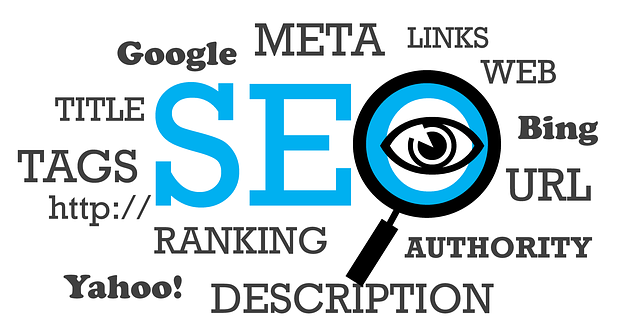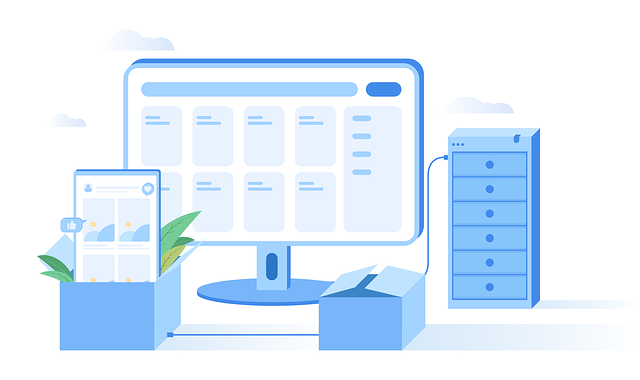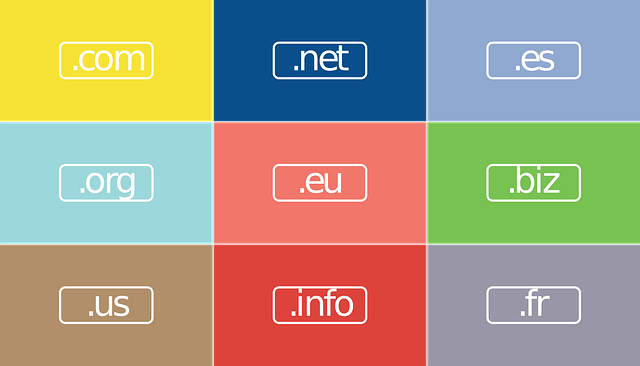Private Blog Networks (PBNs) are a hot topic in the world of search engine optimization (SEO). Some swear by them, while others warn against their risks. If you’re considering using PBNs for your website, it’s crucial to understand the ins and outs of PBN hosting. This article will break down the advantages and disadvantages of PBN hosting, helping you make an informed decision for your SEO strategy.

What is a PBN?
Before diving into the pros and cons of PBN hosting, let’s clarify what a PBN actually is. A Private Blog Network is a group of websites used to build links to a main ‘money’ site. The goal is to improve the main site’s search engine rankings by creating multiple sources of backlinks.
These networks are called ‘private’ because one person or company owns and controls all the sites in the network. The websites in a PBN are usually expired domains with existing authority, which are then repurposed to link back to the main site.

The Importance of Hosting in PBNs
Hosting plays a crucial role in the effectiveness and safety of a PBN. The way you host your PBN can make or break your entire network. Poor hosting decisions can lead to search engines detecting your sites easily, resulting in penalties or de-indexing.
So, what makes PBN hosting different from regular website hosting? The main difference lies in the need for diversity and the appearance of independence between the sites in your network.

Pros of PBN Hosting
Let’s explore the advantages that make PBN hosting an attractive option for some SEO professionals.
Control Over Your Backlink Profile
One of the biggest advantages of PBN hosting is the level of control it gives you over your backlink profile. With a PBN, you decide which sites link to your main site, how many links you get, and what anchor text to use. This control allows you to tailor your backlink strategy to your specific needs.
For example, if you’re trying to rank for a particular keyword, you can create content on your PBN sites that naturally includes links with that keyword as anchor text. This level of customization is hard to achieve with other link-building methods.
Cost-Effective in the Long Run
While setting up a PBN requires an initial investment, it can be cost-effective in the long run. Once your network is established, you have a constant source of high-quality backlinks at your disposal. This can save you money compared to continuously purchasing backlinks from other sources.
Consider this: if you were to buy ten high-quality backlinks every month at USD$100 each, you’d be spending USD$1,000 monthly or USD$12,000 annually. With a well-maintained PBN, you could potentially generate the same number of links (or more) for a fraction of that cost over time.
Faster Rankings
PBNs can potentially help you achieve faster rankings in search engine results pages (SERPs). Since you have control over the linking sites, you can quickly deploy a large number of relevant, high-quality backlinks to your money site.
This rapid influx of authoritative links can give your site a significant boost in search rankings, especially for competitive keywords. However, it’s important to note that this should be done carefully to avoid raising red flags with search engines.
Versatility
A well-constructed PBN can be a versatile tool in your SEO arsenal. You can use it not only for your main money site but also to boost other projects or even monetize it by selling links to others (though this comes with its own risks).
For instance, if you start a new website in a different niche, you could use some of your PBN sites to give it an initial boost. This versatility makes PBNs an attractive option for SEO professionals managing multiple projects.
Independence from Third-Party Websites
With a PBN, you’re not reliant on third-party websites for backlinks. This independence can be valuable, as you don’t have to worry about links disappearing if other sites change their linking policies or go offline.
You have full control over the content and links on your PBN sites, ensuring that your backlinks remain intact as long as you maintain the network.
Cons of PBN Hosting
While PBN hosting has its advantages, it’s crucial to understand the potential drawbacks before diving in.
Risk of Penalties
Perhaps the biggest drawback of PBN hosting is the risk of penalties from search engines, particularly Google. If your PBN is discovered, it could result in severe penalties for both your PBN sites and your money site.
These penalties can range from a drop in rankings to complete de-indexing of your sites from search results. Given that Google explicitly states that link schemes violate their Webmaster Guidelines, using PBNs is a high-risk strategy.
Ongoing Maintenance and Costs
While PBNs can be cost-effective in the long run, they require significant ongoing maintenance and associated costs. These expenses include:
- Domain renewals
- Hosting fees
- Content creation
- Technical maintenance
For a network of 10 sites, you might be looking at annual costs of USD$500-USD$1000 for domains and hosting alone, not to mention the time or money spent on creating fresh content for each site.

Time-Consuming
Building and maintaining a PBN is a time-intensive process. It involves:
- Finding and vetting expired domains
- Setting up websites on these domains
- Creating unique content for each site
- Managing the technical aspects of multiple websites
This time commitment can be substantial, especially if you’re managing the PBN alongside your main business or website.
Complex Setup to Avoid Detection
To minimize the risk of detection, PBN hosting requires a complex setup. You need to ensure that your network appears as a group of independent websites rather than interconnected entities. This involves:
- Using different hosting providers
- Employing various CMS platforms
- Creating unique designs for each site
- Using different WHOIS information
- Diversifying IP addresses
The intricacy of this setup increases the chances of making mistakes that could expose your network.
Ethical Concerns
Using PBNs raises ethical questions in the SEO community. Many consider it a ‘black hat’ technique that goes against search engine guidelines and the spirit of organic link-building.
This ethical dilemma can be particularly problematic if you’re working with clients who prefer to stick to ‘white hat’ SEO methods or if you’re in an industry where reputation is crucial.
Limited Long-Term Value
While PBNs can provide quick ranking boosts, they offer limited long-term value compared to other SEO strategies. The links from PBN sites don’t provide the same type of authority, or trust signals that genuine, editorially-given links from reputable sites do.
Moreover, as search engines become more sophisticated, the effectiveness of PBNs may decrease over time, potentially rendering your investment obsolete.
Key Considerations for PBN Hosting
If you decide to pursue PBN hosting despite the risks, here are some crucial factors to consider:
Diversity in Hosting
One of the most critical aspects of PBN hosting is diversity. Using the same host for all your PBN sites makes it easier for search engines to detect the connection between them. Instead, spread your sites across multiple hosting providers.
IP Diversity
Along with hosting diversity, ensure that your PBN sites are on different IP addresses. Websites sharing the same IP address are easily identifiable as potentially related.
Consider using the best PBN hosting providers from different countries or regions to further diversify your IP addresses. However, make sure the hosting location makes sense for the supposed origin and target audience of each site.
Content Quality and Relevance
High-quality, relevant content is crucial for both the effectiveness and the camouflage of your PBN. Each site in your network should have the following:
- Original, well-written content
- A clear theme or niche
- Regular updates
- A mix of internal and external links (not just to your money site)
Imagine you’re creating a PBN site about home gardening. You’d want to publish articles about topics like ’10 Easy-to-Grow Vegetables for Beginners’ or ‘How to Create a Sustainable Garden in Small Spaces.’ These articles would naturally include links to your main site, perhaps about gardening tools or organic fertilizers.
Site Design and Functionality
Your PBN sites should look like legitimate, independent websites. This means:
- Using different themes or templates for each site
- Creating unique logos and branding
- Setting up proper site navigation and pages (About, Contact, Privacy Policy, etc.)
- Implementing various widgets or features relevant to each site’s niche
The goal is to make each site in your network appear as though it’s run by a different owner with its own unique purpose and audience. This attention to detail in design and functionality helps maintain the illusion of independence, making it harder for search engines to detect the connection between your PBN sites.
Link Building Patterns
Be careful with your link-building patterns. Avoid linking to your money site from every post on your PBN sites. Mix in links to authority sites in your niche and internal links within each PBN site.
Also, vary your anchor text. Using the same keyword-rich anchor text across all your PBN sites is a red flag for search engines.
Whois Privacy and Registration Details
Use Whois privacy protection for your domains and vary the registration details for each site. If possible, register domains through different registrars and use different email addresses for each.
Scaling Considerations
As you grow your PBN, the complexity and risk increase. Consider the scalability of your hosting solution. Can you easily add new sites without compromising the network’s security?
Remember, the larger your network, the more challenging it becomes to maintain and the higher the risk of detection.
Making the Decision: Is PBN Hosting Right for You?
Deciding whether to use PBN hosting is not a choice to be made lightly. It requires careful consideration of your specific situation, including:
- Your risk tolerance
- Available resources (time, money, skills)
- Your industry and competition
- Your long-term SEO goals
If you’re in a highly competitive niche and have the resources to properly manage a PBN, it might be a strategy worth considering. However, for many businesses, the risks and complexities of PBN hosting outweigh the potential benefits.
Remember, search engines are continuously evolving, and strategies that work today may not be effective tomorrow. Whatever approach you choose, it’s crucial to stay informed about the latest SEO trends and best practices.
Conclusion
PBN hosting offers powerful SEO benefits like backlink control and faster rankings, but it comes with significant risks, including search engine penalties and high maintenance costs. If you choose this path, proceed with caution and thorough planning.
For many, focusing on white-hat SEO techniques like content marketing, guest posting, and digital PR may be safer and more sustainable. These methods offer stable, long-term benefits with less risk.
Ultimately, your decision should be based on your specific circumstances, goals, and risk tolerance. Whichever strategy you choose, stay informed about SEO trends and always prioritize providing value to your audience. Remember, the SEO landscape is constantly evolving, so be prepared to adapt your approach as needed.